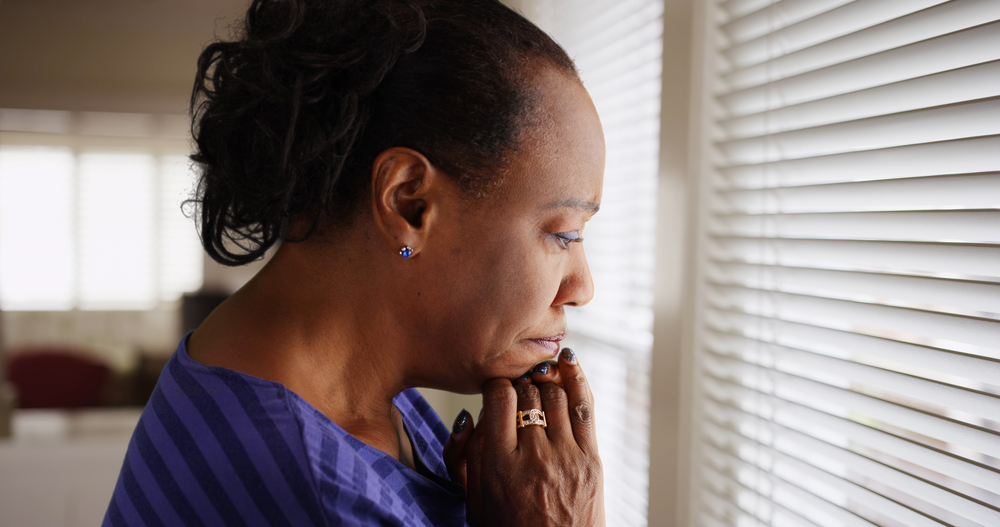You know what they say about hindsight being 20/20? Well, after 50 years of living, that vision gets crystal clear. Let’s talk about those middle-of-the-night thoughts that keep the over-50 crowd staring at their ceilings, wondering about the roads not taken.
1. Not Buying Property When It Was Dirt Cheap

It’s the story that makes every middle-aged person want to build a time machine. They remember when that beach house was just $50,000, or when that now-trendy neighborhood was considered “up and coming.” They passed on properties that have since multiplied in value by ten or twenty times, choosing instead to rent or wait for the “perfect time” to buy. Now they watch their adult children struggle to afford starter homes in areas they could have bought outright thirty years ago, and the math of what could have been keeps them up at night.
2. Playing It Too Safe With Their Careers

They took the secure path instead of chasing their dreams, choosing a steady paycheck over a risky venture. Now they watch younger entrepreneurs taking chances and think about that business idea they had in 1995 that someone else turned into a million-dollar company. They climbed the corporate ladder only to realize it was leaning against the wrong building. The golden handcuffs of benefits and pension plans kept them in jobs that slowly drained their spirit, and now they wonder how different life could’ve been.
3. Not Taking Better Care of Their Bodies

Nobody told them their knees would keep a lifetime record of every pickup basketball game, or that their back would remember every piece of furniture they moved without help. They ignored the warnings about sunscreen, thinking a tan was worth it. They pushed through injuries, skipped checkups, and treated their bodies like they came with lifetime warranties. Now they’re paying the price with chronic conditions that could have been prevented, watching their more health-conscious friends still running marathons while they struggle with basic activities.
4. Letting Old Friendships Fade

They let distance, careers, and family obligations slowly erode friendships that seemed unbreakable in their twenties. Those friends who knew them before mortgages and marriages, who shared their dreams and inside jokes, have become Christmas card acquaintances or Facebook connections. Now, when life gets hard and they need someone who remembers who they used to be, they realize those deep, decades-long friendships are irreplaceable. They wish they’d made more effort to maintain them.
5. Not Learning About Money Management Sooner

They spent their young adult years financially illiterate, thinking retirement was too far away to worry about. They didn’t understand compound interest when it could have been their best friend. Instead of maximizing their 401(k) contributions in their thirties, they leased new cars and accumulated credit card debt. The financial education they eventually got through hard experience feels like it came decades too late, and now they’re playing catch-up with their retirement savings while watching other people prepare to sit back and sip piña coladas at their beach houses.
6. Missing Their Children’s Childhoods

Caught up in the rat race of career building and bill paying, they missed soccer games and dance recitals, thinking there would always be another one. They said “not now” to story time too often, pushed playtime aside for overtime, and rushed through precious moments that they now realize were actually the big moments. Looking at photos of their children growing up, they see how many times they were absent or distracted by their phones or work concerns.
7. Not Asking Their Parents Important Questions

They waited too long to ask their parents about family history, old recipes, and life lessons learned. Now those questions sit unanswered as they realize how much family history died with their parents. They wish they’d recorded their mom telling family stories or asked their dad more about his childhood. The family medical history, the unspoken reconciliations, the reason behind old family feuds—all these mysteries could have been solved if they’d just asked while they had the chance.
8. Worrying Too Much About What Others Thought

They spent decades of their life imprisoned by other people’s expectations, wearing uncomfortable shoes, taking jobs they hated, and living in neighborhoods they couldn’t afford, all to maintain an image that didn’t actually matter. Now they realize that most of the people whose opinions they worried about were too busy worrying about their own lives to actually judge anyone else’s. They wish they’d learned sooner to dance like nobody was watching because usually, nobody was.
9. Not Traveling When They Had the Chance

Before mortgages, kids, and aging parents needed them, they had opportunities to see the world that they let slip away. They turned down chances to study abroad, skipped backpacking trips after college, and saved their vacation days like they’d get a prize for having the most left over. Now travel requires more planning, and more money, and comes with physical limitations they didn’t have when they were younger.
10. Being Too Cautious in Love

They let great potential partners get away because they were too afraid of getting hurt or making mistakes. They stayed in lukewarm relationships because they were comfortable, or ended promising ones because they weren’t perfect. Some walked away from true love because it seemed too difficult or complicated at the time. Now they understand that perfect timing is a myth and that real love is worth fighting for.
11. Not Standing Up to Workplace Toxicity

They tolerated bullying bosses, unfair treatment, and toxic workplace cultures because they thought that’s just how things were. They watched colleagues get mistreated and stayed silent to protect their own positions. Now they realize their silence enabled bad behavior that affected not just them but countless others who came after them. They wish they’d found the courage to speak up, file complaints, or at least document the abuse, knowing now that their silence contributed to perpetuating harmful practices.
12. Neglecting Their Mental Health

They dismissed anxiety as normal stress, depression as just feeling blue, and trauma as something to “get over.” Therapy was seen as a sign of weakness or failure, so they bottled up their emotions and soldiered on. Now they see how unresolved mental health issues affect their relationships, careers, and physical health. They watch younger generations openly discussing mental health and seeking help, wishing they’d had the awareness and courage to do the same.
13. Not Starting Their Own Business

They had ideas that could have revolutionized their industry, solutions to problems they encountered daily, and dreams of being their own boss. But they convinced themselves they needed more experience, more capital, or more connections before starting their own venture. Now they watch as younger entrepreneurs launch successful businesses with fewer resources than they had, and they realize that their decades of experience could have been spent building their own legacy.
14. Losing Touch With Their Creative Side

They used to write poetry, play guitar, paint, or dance. These were forms of self-expression that made life richer and more meaningful. But somewhere along the way, practicality took precedence over passion. Their creative outlets were labeled as “impractical” or “childish,” and they packed away their artistic dreams along with their art supplies. Now they realize that creativity is also about maintaining a vital connection to their authentic selves.
15. Not Taking More Risks Early On

When they had the least to lose, they played it the safest. No mortgage, no kids, minimal responsibilities—it was the perfect time to take big chances, but they chose security instead. They could have moved to a new city, started a bold venture, or pursued an unconventional path. The safety they chose then feels less valuable now than the stories and experiences they could have had.








